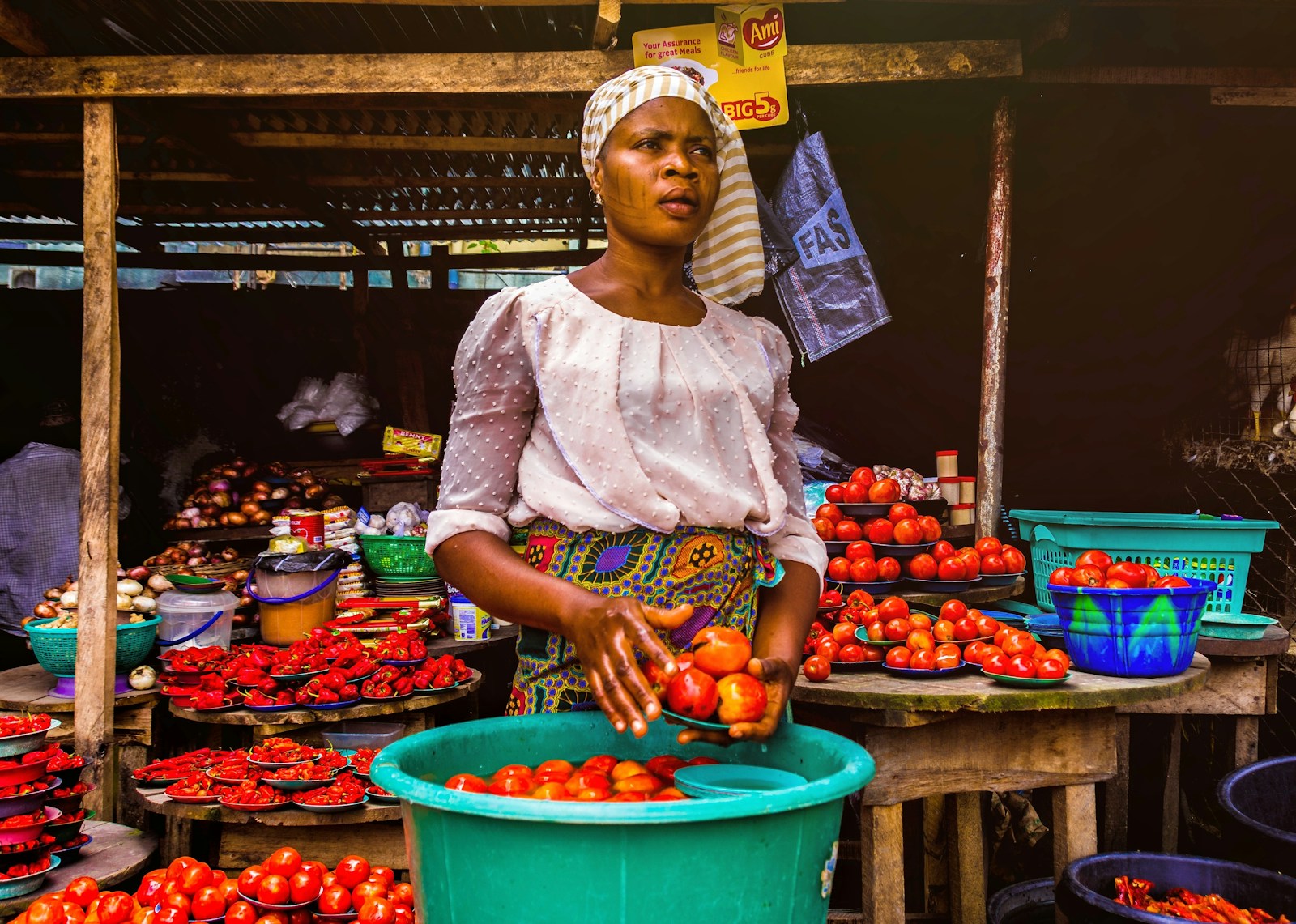Food Systems Africa: A Critical Shift for the Continent
Africa’s food systems are undergoing a seismic transformation. From production to consumption, every step in the food chain is now under scrutiny. As climate change intensifies and population growth accelerates, the continent faces a decisive moment. The Comprehensive Africa Agriculture Development Programme (CAADP) is at the center of this shift, proposing bold strategies to ensure that food is not only available, but also nutritious, sustainable, and accessible. This article explores seven powerful tools that could reshape the future of food systems in Africa — and why they matter now more than ever.
1. Food Systems Africa: Precision Agriculture: Smarter Farming for Smart Growth
Precision agriculture is revolutionizing how African farmers operate. By integrating data analytics, GPS mapping, and AI-driven tools, small-scale farmers can now make informed decisions about crop planting, irrigation, and pest control. Countries like Kenya and Nigeria are already piloting satellite-based soil analysis, which helps increase yields while minimizing environmental impact. According to FAO, smart farming techniques can raise productivity by up to 40% in sub-Saharan regions. This leap in efficiency is essential to modernizing Food Systems Africa and making them climate-resilient. Internally, programs like CAADP’s technology hubs provide local training and scalable models, enabling farmers to adopt digital innovations with confidence.
2. Food Systems Africa: Local Value Chains: Keeping the Wealth Within Africa
One of the most overlooked tools in transforming Food Systems Africa is strengthening local value chains. Rather than exporting raw agricultural goods and importing processed food, African nations are now focusing on local processing, packaging, and distribution. This shift not only creates jobs but also boosts national economies. For example, Ethiopia’s agri-processing parks have attracted foreign investment and significantly increased local employment. Governments are encouraged to support cooperatives, offer tax breaks to local food processors, and create farm-to-market infrastructure. Internal efforts such as those highlighted by the Agriculture section on MauritiusBizMonitor emphasize decentralization and community-led models. Resilient value chains are the backbone of self-sufficient food systems and a vital strategy to reduce Africa’s food import dependency.
3. Food Systems Africa: Resilient Infrastructure: From Farm to Market with Less Loss
In many African regions, up to 40% of food is lost between harvest and market due to poor infrastructure. Building resilient transportation, storage, and cold-chain systems is vital for improving Food Systems Africa. For instance, in Rwanda, investment in rural feeder roads has drastically reduced post-harvest losses and increased farmers’ market access. Innovations such as solar-powered cold rooms and community grain storage banks are game changers. Internally, linking agricultural zones to urban markets must be a national priority. By improving logistics, governments can ensure that food moves faster, stays fresher, and reaches more people—especially in vulnerable communities. Moreover, international support from programs like the GIZ Green Innovation Centre can accelerate infrastructure rollouts that meet climate-smart criteria.
4. Women and Youth Empowerment: Unlocking Hidden Potential
Africa’s future food systems depend on its people — particularly women and youth. Women account for over 60% of the continent’s agricultural labor force, yet they face barriers in land ownership, finance, and training. Similarly, Africa’s youth — the fastest-growing demographic globally — are often disengaged from agriculture due to limited opportunities.
By integrating women and youth into agrifood value chains, Food Systems Africa becomes more inclusive and sustainable. Initiatives like Nigeria’s “Agropreneur Bootcamps” or Kenya’s “Women in Agritech” are equipping the next generation with essential skills and digital tools. National policies must prioritize access to credit, land, and training tailored for young and female farmers. Empowerment is not just social justice; it’s smart economics. A food system that values all contributors is a system built to last.
5. Climate-Smart Practices: Greening the Continent’s Plate
Africa is on the frontlines of climate change, yet it contributes the least to global emissions. This paradox makes climate-smart agriculture a cornerstone of the continent’s strategy. Practices like agroforestry, regenerative farming, and drought-resistant crops are vital for building adaptive and resilient Food Systems Africa. In Zambia, farmers are now rotating legumes with maize to restore soil fertility and reduce dependency on chemical fertilizers.
Meanwhile, Morocco’s large-scale investment in solar-powered irrigation showcases how green energy and agriculture can intersect. The African Union, through CAADP, promotes climate adaptation funds and training centers for farmers. Collaborating with partners like CGIAR, African governments can scale up innovations that mitigate risk while ensuring food security. Climate-smart agriculture is not a luxury; it’s a necessity for Africa’s survival.
6. Nutrition-First Policies: Fighting Hunger with Health
A truly effective food system must go beyond quantity — it must prioritize quality. Many African nations still struggle with malnutrition, especially among children and pregnant women. That’s why nutrition-sensitive agriculture is gaining momentum. By integrating nutrient-rich crops like orange-fleshed sweet potatoes, moringa, and millet into mainstream farming, Food Systems Africa becomes a vehicle for public health. Malawi’s “Scaling Up Nutrition” initiative is a success story, improving dietary diversity at the household level through school feeding programs and community gardens. Governments can incentivize the cultivation of biofortified crops and promote local food education in schools and media. Collaboration with global actors like World Food Programme can strengthen impact. If Africa wants to feed its future, it must nourish it first.
7. Digital Agriculture: Tech Tools to Transform the Fields
Digital innovation is rapidly redefining what’s possible in African agriculture. From mobile weather alerts and market price apps to drone surveillance and blockchain for supply chains, digital tools are unlocking efficiencies never seen before. In Ghana, platforms like “Farmerline” deliver personalized advice to smallholders via SMS in local languages. This empowers even the most remote farmers to make better decisions. For Food Systems Africa to fully evolve, tech access must be democratized. National broadband strategies should include rural zones, and tech hubs should offer training in agri-digital literacy. Partnerships with platforms like AgriTech Africa can scale these solutions continent-wide. Technology isn’t the future of agriculture — it’s the present.
8. Policy Reform and Regional Integration
Policy coherence and cross-border cooperation are fundamental to creating unified and efficient food systems. Many African countries operate in silos, with inconsistent agricultural policies, trade barriers, and subsidies. Harmonizing these frameworks through bodies like the African Continental Free Trade Area (AfCFTA) can unleash regional markets and reduce duplication. For example, aligning food safety standards and removing border tariffs on staple foods can accelerate food movement and reduce costs. Internal reforms should also focus on land rights, seed laws, and investment protections. Integrating these policies under the umbrella of Food Systems Africa allows for holistic and scalable transformation. Coordination among ministries of agriculture, trade, and environment is crucial — and long overdue.
9. Risk Management and Early Warning Systems
African farmers face increasing risks from pests, droughts, floods, and economic shocks. Building a strong risk management framework is essential to protecting gains in food system reform. Early warning systems using AI and remote sensing can help detect locust swarms or rainfall anomalies before they become disasters. Insurance models like index-based weather insurance are helping farmers in Kenya and Ethiopia recover from crop failure more rapidly. Embedding risk response into Food Systems Africa strategy will safeguard livelihoods and stabilize food prices. International donors and national governments must invest in data infrastructure, disaster response units, and risk education at the community level. A proactive approach will always cost less than a reactive one.
10. Community-Led Governance: Power at the Grassroots
The most successful food systems are those shaped by the people they serve. Community-led governance — where local farmers, traders, and citizens influence food policy — is a rising trend across Africa.
From Senegal’s village-based seed cooperatives to Uganda’s participatory budgeting for agricultural development, grassroots voices are making an impact. Food Systems Africa must be bottom-up, not top-down. Empowering local councils, farmer unions, and civil society groups to co-design solutions ensures cultural fit and long-term sustainability. This also builds trust between citizens and institutions, increasing compliance and collaboration. Decentralized governance backed by digital platforms can make food systems more democratic, transparent, and responsive to real needs — not just political agendas.
11. Urban Agriculture: Greening Africa’s Cities
As Africa’s cities expand rapidly, urban agriculture is emerging as a vital contributor to food security. Rooftop gardens, hydroponic systems, and community farms are bringing fresh produce closer to consumers, reducing transport costs and carbon footprints. In cities like Dakar and Nairobi, urban farming projects are empowering youth and improving household nutrition. These initiatives are supported by NGOs such as RUAF Urban Agriculture Network, which provides technical training and policy advocacy. By integrating Food Systems Africa into city planning, municipalities can transform unused land into productive space. Urban agriculture also strengthens social cohesion and reduces the pressure on rural supply chains — a win-win strategy in a rapidly urbanizing continent.
12. Education and Awareness: Shaping Tomorrow’s Consumers
Transforming Africa’s food systems isn’t just about farmers — it’s also about consumers. Educating the public on nutrition, sustainability, and food choices is key to long-term success. School gardens, radio programs, and social media campaigns are effective tools for spreading awareness. In South Africa, the “Grow Your Own” movement has encouraged thousands of families to start home gardens and reduce reliance on imported food. Food Systems Africa must include curriculum reforms that introduce food literacy at all levels. Consumers who understand where their food comes from are more likely to support ethical, local, and sustainable practices. A well-informed society is the engine of resilient and equitable food systems.
13. Private Sector Engagement: Fueling Innovation and Investment
The private sector holds immense potential to accelerate food system transformation. Agribusinesses, logistics companies, and fintech startups are introducing new models that increase efficiency and accessibility. For example, Nigeria’s “Thrive Agric” connects investors to farmers through a digital platform, offering capital and support. Meanwhile, companies like Danone and Nestlé are launching local sourcing programs and supporting smallholder farmers. Governments should create enabling environments through tax incentives, public-private partnerships, and clear regulations. When aligned with the goals of Food Systems Africa, private investment becomes a driver of inclusive growth. The future of food in Africa will be co-created — and co-financed — with bold private actors leading the charge.
Conclusion: Africa’s Food Future Starts Now
Africa stands at a pivotal moment. With the right tools, policies, and people, the continent can reshape its food systems to be inclusive, sustainable, and future-ready. From precision agriculture and urban farming to youth empowerment and digital solutions, each strategy plays a crucial role in the broader mission. Food Systems Africa is not a concept — it’s a necessity. The time to act is now. Policymakers, communities, and businesses must come together to harness this momentum. If successful, the transformation won’t just feed a continent — it will nourish generations to come. Let Africa lead its own food revolution.




